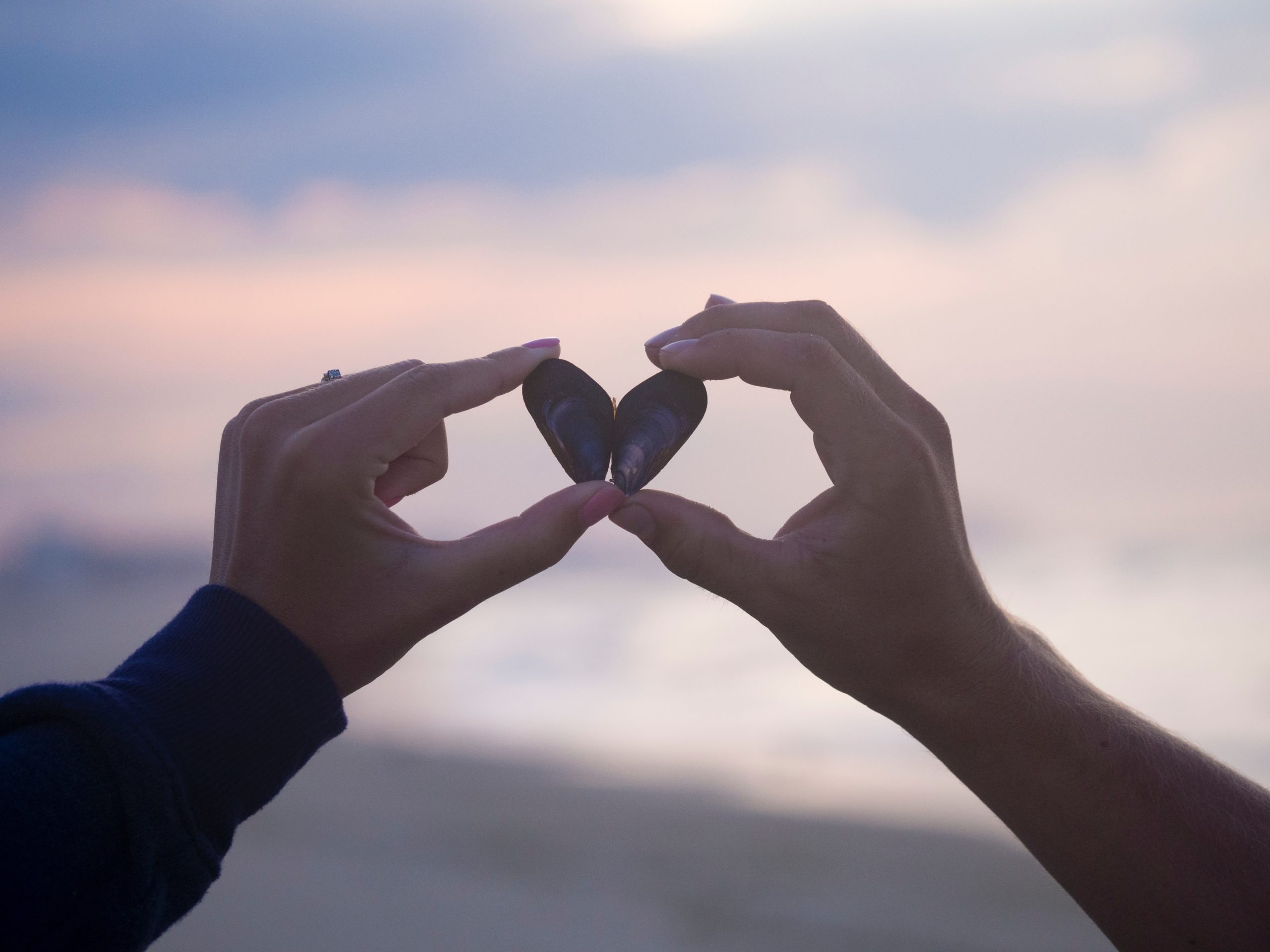
As children, we often grow up with a fairytale idea of what love is. Even as a 20-year-old, I would say that most people I know, myself included, subconsciously believe that falling in love and a happily ever after like in romance novels is the ideal. The not-so-pleasant reality though is that not all of us will get a happily ever after with the person we choose to marry. Why is that the case?
As children, we often grow up with a fairytale idea of what love is. Even as a 20-year-old, I would say that most people I know, myself included, subconsciously believe that falling in love and a happily ever after like in romance novels is the ideal. The not-so-pleasant reality though is that not all of us will get a happily ever after with the person we choose to marry. Why is that the case?

Photo by Aaron Burden on Unsplash

Photo by Aaron Burden on Unsplash
In the United States alone, 42-53% of marriages each year eventually end in divorce (World Population Review, 2023). The Netherlands reported a marriage rate of 3.2 per 1000 people – with a divorce rate of 1.5. What is more shocking is that the chance of divorce increases for second and third marriages (Banschick, 2012). Of those asked, 3 out of 4 listed lack of commitment as the main reason for their divorce, more so than infidelity (Bieber, 2023). While divorce can be a blessing in extreme situations such as domestic violence, the question I want to investigate is this: if lack of commitment is the main reason for divorce, do we simply forget how to love over the years? If love should conquer all like in novels and movies, why does it fail to keep people together?
To answer why love falls apart, we need to understand what it means to love. Reading any romance novel or listening to a love song will give you one version of what love is. The Oxford dictionary defines love as “a very strong feeling of liking and caring for somebody/ something”. There is no indication of it lasting forever. It is also important to differentiate between passionate and companionate love (Meyers, 2007). The former feels like a drug that you cannot get enough of. But like every high, it inevitably fades with time. Companionate love on the other hand promotes commitment in long-term relationships, but also cannot be taken for granted. So, love can be both an all-consuming chemical reaction or a beautiful friendship we can choose to nurture for a lifetime.
“Maybe just that is the wonder of it, that we will never be able to truly compare what we are feeling with others, and that the love we experience will only ever be ours.”
What we often forget is that love does not belong to humans only, it is an evolutionary product ingrained in our genes (Yakir, 2017). We are programmed to increase the chance of our genetic survival, and this is done through multiple partners. Only 0.0001% of species form lifelong bonds. Moreover, the Coolidge effect states that humans receive more pleasure when experiencing an orgasm with a new partner – resembling passionate love. So, from a scientific perspective, are we even programmed to fall in love and form lifelong bonds? New relationship structures like open relationships are increasingly suggesting otherwise. In my opinion, the beauty of love, like any subjective experience, is that we will never truly be able to know what love feels like to others. We may be able to relate to some experiences, while others may sound completely foreign to us. Maybe just that is the wonder of it, that we will never be able to truly compare what we are feeling with others, and that the love we experience will only ever be ours.
Love often guides our relationship choices, but it does not always conquer all. If we are lucky enough to be able to choose our life partner, this is not a decision most of us want to make blindly. Esther Perel, a psychotherapist known for her work on modern relationships, shares her stance on the relationship checklists. Tall, family man, funny, confident but not too much – if he ticks all the boxes, I’ll give him a shot. I believe it is these checklists that sometimes also get in the way of us allowing ourselves to be vulnerable and fall in love, especially knowing it can be just as painful as it is beautiful. Looking forward, what if you fall passionately in love but with time it significantly fades away? Perel refers to this as relationship ambivalence. Things are not good enough to stay or bad enough to leave. Sometimes one session of couples therapy is enough to end the relationship. Sometimes ambivalence is not necessarily bad. Dr. Alexandra Solomon, states “patience is also a form of action. It’s not purely passivity. It’s not resignation.” In the end, ambivalence is a part of life, not only when it comes to our relationship. How we choose to deal with relationship ambivalence will of course differ from person to person with no right or wrong answer. A relationship consists of making tough decisions, one of them being whether we are able to choose to love our partner and focus on the good. What about if we did not have a choice though?
It would be overly simplistic to look at love solely from the perspective of western cultures. Interestingly, a qualitative study found more variance within than between cultures on themes identified as relating to love (Mouton & Montijo, 2016). Though we may feel love in similar ways, we do not all get to choose our partners for life. Arranged marriages, in which partners are chosen by family, are commonly found in countries like India, China, Pakistan and Japan (Arranged Marriage Countries 2024, n.d.). Again, it is important to note there are also arranged marriages that are coercive and abusive, which would greatly benefit from having the choice to divorce. I am also not taking a stance on whether I find arranged marriages to be positive or negative as it is not my place, nor do I have enough personal experience to make a judgment on this. Instead, I will use them as a means to demonstrate how love may arise in different circumstances. For example, a study found that marriages of choice and arranged marriages do not differ significantly in terms of marriage satisfaction but do vary in terms of other important factors (Myers et al., 2005). In the United States, loyalty and love were rated as much more important in a marriage than in India. This finding suggests that marital satisfaction and love may not necessarily be associated with each other.
“Love that keeps people together long-term comes down to commitment, which is and will always be a choice.”
Still, sometimes love does emerge in arranged marriages, more specifically in about half (as cited in Epstein et al., 2013). Referring to the beginning of this article, this statistic is similar to that of divorce rates in countries characterized by marriages of choice. Two studies found that in arranged marriages self-reported love grew significantly over time, with commitment, closely followed by sacrifice, being the strongest factors strengthening love (Epstein et al., 2013). This has even raised the suggestion that the process of strengthening love in arranged marriages could be applied to autonomous marriages, where love dissipates over time. Overall, it seems that the love that keeps people together long-term comes down to commitment, which is and will always be a choice.
When looking at biology and evolution, we are not necessarily meant to be monogamous beings, pointing to the fact that maybe love is not meant to be forever. Yet, a large proportion of marriages do last a lifetime, and many are characterized by love, friendship, and commitment until the very end. Esther Perel once stated “an ideal relationship is not something our partner owes us; it’s something we build together” A marriage becomes a partnership, where inevitably problems arise that need to be solved together. How and whether we fall in love greatly differs from person to person but perhaps in the end whether we choose to continue to love them does not so much. So, to answer the question of whether loving someone is a choice, I believe to a certain extent we can choose to stay committed to our partner, for better and for worse, in sickness and in health, in good times and bad. <<
References
- Arranged Marriage countries 2024. (n.d.). https://worldpopulationreview.com/country-rankings/arranged-marriage-countries
- Bieber, C., JD. (2023, August 8). Revealing divorce statistics in 2023. Forbes Advisor. https://www.forbes.com/advisor/legal/divorce/divorce-statistics/
- Divorce rates by country 2023. (n.d.). https://worldpopulationreview.com/country-rankings/divorce-rates-by-country
- Epstein, R., Pandit, M. L., & Thakar, M. (2013). How Love Emerges in Arranged Marriages: Two cross-cultural studies. Journal of Comparative Family Studies, 44(3), 341–360. https://doi.org/10.3138/jcfs.44.3.341
- From Esther Perel’s Blog – Letters from Esther #32: Should I Stay or Should I Go? (n.d.). https://www.estherperel.com/blog/letters-from-esther-32-should-i-stay-or-should-i-go
- From Esther Perel’s blog – Looking for the perfect fit? Pros & Cons of relationship checklists. (n.d.). https://www.estherperel.com/blog/looking-for-the-perfect-fit-pros-cons-of-relationship-checklists
- love_1 noun – Definition, pictures, pronunciation and usage notes | Oxford Advanced Learner’s Dictionary at OxfordLearnersDictionaries.com. (n.d.). https://www.oxfordlearnersdictionaries.com/definition/english/love_1#:~:text=%E2%80%8B,your%20family%20or%20a%20friend
- Mouton, A. R., & Montijo, M. N. (2016). Love, passion, and peak experience: A qualitative study on six continents. The Journal of Positive Psychology, 12(3), 263–280. https://doi.org/10.1080/17439760.2016.1225117
- Meyers, L. (n.d.-c). The eternal question: Does love last? https://www.apa.org. https://www.apa.org/monitor/feb07/eternal.html
- Myers, J. E., Madathil, J., & Tingle, L. R. (2005). Marriage satisfaction and Wellness in India and the United States: A preliminary comparison of arranged marriages and marriages of choice. Journal of Counseling & Development, 83(2), 183–190. https://doi.org/10.1002/j.1556-6678.2005.tb00595.x
In the United States alone, 42-53% of marriages each year eventually end in divorce (World Population Review, 2023). The Netherlands reported a marriage rate of 3.2 per 1000 people – with a divorce rate of 1.5. What is more shocking is that the chance of divorce increases for second and third marriages (Banschick, 2012). Of those asked, 3 out of 4 listed lack of commitment as the main reason for their divorce, more so than infidelity (Bieber, 2023). While divorce can be a blessing in extreme situations such as domestic violence, the question I want to investigate is this: if lack of commitment is the main reason for divorce, do we simply forget how to love over the years? If love should conquer all like in novels and movies, why does it fail to keep people together?
To answer why love falls apart, we need to understand what it means to love. Reading any romance novel or listening to a love song will give you one version of what love is. The Oxford dictionary defines love as “a very strong feeling of liking and caring for somebody/ something”. There is no indication of it lasting forever. It is also important to differentiate between passionate and companionate love (Meyers, 2007). The former feels like a drug that you cannot get enough of. But like every high, it inevitably fades with time. Companionate love on the other hand promotes commitment in long-term relationships, but also cannot be taken for granted. So, love can be both an all-consuming chemical reaction or a beautiful friendship we can choose to nurture for a lifetime.
“Maybe just that is the wonder of it, that we will never be able to truly compare what we are feeling with others, and that the love we experience will only ever be ours.”
What we often forget is that love does not belong to humans only, it is an evolutionary product ingrained in our genes (Yakir, 2017). We are programmed to increase the chance of our genetic survival, and this is done through multiple partners. Only 0.0001% of species form lifelong bonds. Moreover, the Coolidge effect states that humans receive more pleasure when experiencing an orgasm with a new partner – resembling passionate love. So, from a scientific perspective, are we even programmed to fall in love and form lifelong bonds? New relationship structures like open relationships are increasingly suggesting otherwise. In my opinion, the beauty of love, like any subjective experience, is that we will never truly be able to know what love feels like to others. We may be able to relate to some experiences, while others may sound completely foreign to us. Maybe just that is the wonder of it, that we will never be able to truly compare what we are feeling with others, and that the love we experience will only ever be ours.
Love often guides our relationship choices, but it does not always conquer all. If we are lucky enough to be able to choose our life partner, this is not a decision most of us want to make blindly. Esther Perel, a psychotherapist known for her work on modern relationships, shares her stance on the relationship checklists. Tall, family man, funny, confident but not too much – if he ticks all the boxes, I’ll give him a shot. I believe it is these checklists that sometimes also get in the way of us allowing ourselves to be vulnerable and fall in love, especially knowing it can be just as painful as it is beautiful. Looking forward, what if you fall passionately in love but with time it significantly fades away? Perel refers to this as relationship ambivalence. Things are not good enough to stay or bad enough to leave. Sometimes one session of couples therapy is enough to end the relationship. Sometimes ambivalence is not necessarily bad. Dr. Alexandra Solomon, states “patience is also a form of action. It’s not purely passivity. It’s not resignation.” In the end, ambivalence is a part of life, not only when it comes to our relationship. How we choose to deal with relationship ambivalence will of course differ from person to person with no right or wrong answer. A relationship consists of making tough decisions, one of them being whether we are able to choose to love our partner and focus on the good. What about if we did not have a choice though?
It would be overly simplistic to look at love solely from the perspective of western cultures. Interestingly, a qualitative study found more variance within than between cultures on themes identified as relating to love (Mouton & Montijo, 2016). Though we may feel love in similar ways, we do not all get to choose our partners for life. Arranged marriages, in which partners are chosen by family, are commonly found in countries like India, China, Pakistan and Japan (Arranged Marriage Countries 2024, n.d.). Again, it is important to note there are also arranged marriages that are coercive and abusive, which would greatly benefit from having the choice to divorce. I am also not taking a stance on whether I find arranged marriages to be positive or negative as it is not my place, nor do I have enough personal experience to make a judgment on this. Instead, I will use them as a means to demonstrate how love may arise in different circumstances. For example, a study found that marriages of choice and arranged marriages do not differ significantly in terms of marriage satisfaction but do vary in terms of other important factors (Myers et al., 2005). In the United States, loyalty and love were rated as much more important in a marriage than in India. This finding suggests that marital satisfaction and love may not necessarily be associated with each other.
“Love that keeps people together long-term comes down to commitment, which is and will always be a choice.”
Still, sometimes love does emerge in arranged marriages, more specifically in about half (as cited in Epstein et al., 2013). Referring to the beginning of this article, this statistic is similar to that of divorce rates in countries characterized by marriages of choice. Two studies found that in arranged marriages self-reported love grew significantly over time, with commitment, closely followed by sacrifice, being the strongest factors strengthening love (Epstein et al., 2013). This has even raised the suggestion that the process of strengthening love in arranged marriages could be applied to autonomous marriages, where love dissipates over time. Overall, it seems that the love that keeps people together long-term comes down to commitment, which is and will always be a choice.
When looking at biology and evolution, we are not necessarily meant to be monogamous beings, pointing to the fact that maybe love is not meant to be forever. Yet, a large proportion of marriages do last a lifetime, and many are characterized by love, friendship, and commitment until the very end. Esther Perel once stated “an ideal relationship is not something our partner owes us; it’s something we build together” A marriage becomes a partnership, where inevitably problems arise that need to be solved together. How and whether we fall in love greatly differs from person to person but perhaps in the end whether we choose to continue to love them does not so much. So, to answer the question of whether loving someone is a choice, I believe to a certain extent we can choose to stay committed to our partner, for better and for worse, in sickness and in health, in good times and bad. <<
References
- Arranged Marriage countries 2024. (n.d.). https://worldpopulationreview.com/country-rankings/arranged-marriage-countries
- Bieber, C., JD. (2023, August 8). Revealing divorce statistics in 2023. Forbes Advisor. https://www.forbes.com/advisor/legal/divorce/divorce-statistics/
- Divorce rates by country 2023. (n.d.). https://worldpopulationreview.com/country-rankings/divorce-rates-by-country
- Epstein, R., Pandit, M. L., & Thakar, M. (2013). How Love Emerges in Arranged Marriages: Two cross-cultural studies. Journal of Comparative Family Studies, 44(3), 341–360. https://doi.org/10.3138/jcfs.44.3.341
- From Esther Perel’s Blog – Letters from Esther #32: Should I Stay or Should I Go? (n.d.). https://www.estherperel.com/blog/letters-from-esther-32-should-i-stay-or-should-i-go
- From Esther Perel’s blog – Looking for the perfect fit? Pros & Cons of relationship checklists. (n.d.). https://www.estherperel.com/blog/looking-for-the-perfect-fit-pros-cons-of-relationship-checklists
- love_1 noun – Definition, pictures, pronunciation and usage notes | Oxford Advanced Learner’s Dictionary at OxfordLearnersDictionaries.com. (n.d.). https://www.oxfordlearnersdictionaries.com/definition/english/love_1#:~:text=%E2%80%8B,your%20family%20or%20a%20friend
- Mouton, A. R., & Montijo, M. N. (2016). Love, passion, and peak experience: A qualitative study on six continents. The Journal of Positive Psychology, 12(3), 263–280. https://doi.org/10.1080/17439760.2016.1225117
- Meyers, L. (n.d.-c). The eternal question: Does love last? https://www.apa.org. https://www.apa.org/monitor/feb07/eternal.html
- Myers, J. E., Madathil, J., & Tingle, L. R. (2005). Marriage satisfaction and Wellness in India and the United States: A preliminary comparison of arranged marriages and marriages of choice. Journal of Counseling & Development, 83(2), 183–190. https://doi.org/10.1002/j.1556-6678.2005.tb00595.x



